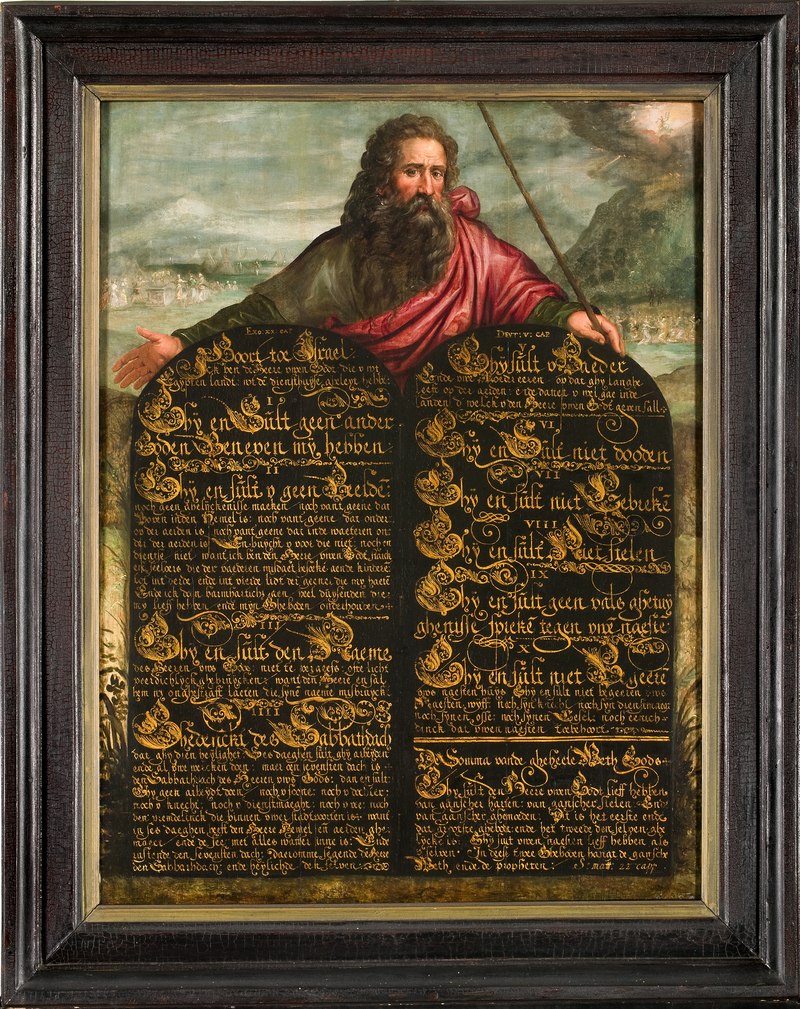Divine Encounter and the Unveiling of Messianic Power in Job 40
Job 40 Overview
Job 40 is a pivotal chapter in the book of Job, occurring after Job’s intense suffering and the failed attempts of his friends to explain his misfortune. This chapter marks the point where God directly addresses Job, initiating a divine encounter.It begins with God posing powerful questions to Job, highlighting His holy character. Through this encounter, Job is humbled and gains a deeper understanding of God’s sovereignty. The divine encounter in Job 40 sets the stage for the unveiling of Messianic power.
In the preceding chapters of Job, we witness Job’s immense suffering and his friends’ attempts to explain his misfortune through their limited understanding of God’s ways. However, it is in Job 40 that God Himself intervenes and addresses Job directly. This divine encounter is significant because it marks a turning point in Job’s journey of faith and provides a glimpse into the unveiling of Messianic power.
Analysis of the Divine Encounter
In Job 40, God poses a series of rhetorical questions to Job, demonstrating His love, holiness, patience, justice, divinity, judgment, and deliverance. Through these questions, God reveals His authority and wisdom, contrasting Job’s limited understanding. Job’s response to the divine encounter showcases his humility and recognition of his insignificance compared to the Almighty. Job acknowledges his lack of knowledge and understanding, saying, “Surely I spoke of things I did not understand, things too wonderful for me to know” (Job 40:3).
One example of God’s powerful questions to Job can be found in Job 40:8-9, where He asks, “Would you discredit my justice? Would you condemn me to justify yourself?” These questions serve to remind Job of God’s righteousness and the importance of trusting in His wisdom, even in the face of suffering and adversity. Job’s response, humbly acknowledging his limitations and surrendering to God’s sovereignty, reflects the transformative impact of encountering the divine with a humble and trusting heart.
Understanding Messianic Power
Messianic power refers to the manifestation of God’s power and authority in relation to the coming Messiah. In Job 40, the unveiling of Messianic power signifies God’s ultimate sovereignty and His redemptive plan. It foreshadows the future coming of the Messiah, who will possess divine power and authority.
The unveiling of Messianic power in Job 40 is particularly evident in the descriptions of the behemoth and leviathan. These powerful creatures symbolize God’s greatness and dominion over all creation.The behemoth, often interpreted as a hippopotamus or a large land animal, and the leviathan, seen as a crocodile or a sea creature, highlight the majesty and unrivaled authority of God. These descriptions point to the future coming of the Messiah, who will exercise divine power and authority in the redemption of humanity.
Interpretation in Biblical Context
Job 40 is situated within the broader narrative of Job’s suffering and his questioning of God’s justice. The passage emphasizes the importance of trusting in God’s wisdom and authority, even when faced with adversity. It serves as a reminder of God’s care for all His creatures and His ultimate plan for redemption. The divine encounter in Job 40 invites theological reflection on the nature of suffering, divine justice, and the role of the Messiah.
When considering the interpretation of Job 40 in the biblical context, it is essential to recognize the overarching theme of the book of Job. Job’s suffering and his subsequent encounter with God highlight the complexity of human existence and the limitations of human understanding. The passage challenges the reader to trust in God’s plan, even when faced with difficult circumstances. It reinforces the need for humility and surrender to God’s authority, recognizing that His ways are higher than ours.
Theological Perspectives
Scholars and theologians offer different interpretations of Job 40. Some emphasize the importance of repentance and humility in the face of a divine encounter, while others focus on the unveiling of Messianic power. The passage invites theological reflection and discussion on various themes, including suffering, divine justice, and the redemptive work of the Messiah.
From a theological perspective, Job’s encounter with God in Job 40 highlights the transformative power of encountering the divine. It teaches the importance of humility and trust in our relationship with God, recognizing our limited understanding and submitting to His sovereignty. The passage also points to the future coming of the Messiah, who will fully manifest God’s power and authority in the redemption of humanity.
One theological perspective to consider is the significance of Job’s response to the divine encounter. Job’s humility and recognition of his limited understanding serve as an example for believers. It reminds us that true wisdom comes from recognizing our dependence on God and surrendering to His sovereign will. By acknowledging our own insignificance and trusting in God’s authority, we can experience His transformative power in our lives.
Practical Lessons for Modern Life
Job 40 teaches the value of humility and trust in our relationship with God. It encourages believers to surrender to God’s wisdom and authority, even in times of difficulty. The passage serves as a source of hope and inspiration, reminding us of God’s redemptive power in our lives. It calls us to approach divine encounters with humility and reverence, recognizing our limited understanding and trusting in God’s sovereignty.
In today’s world, where suffering and adversity are inevitable, the lessons from Job 40 remain relevant. The encounter between Job and God reminds us that true wisdom comes from acknowledging our limitations and trusting in God’s plan, even when it is beyond our comprehension. By humbling ourselves before God and surrendering to His sovereignty, we find strength and hope in the midst of trials.
Job 40 in Comparison to Other Divine Encounters
Job’s divine encounter in Job 40 can be compared to other encounters with God in the Bible.It shares similarities with encounters such as Moses’ burning bush experience, which also emphasizes God’s power, wisdom, and authority. However, Job’s encounter stands out for its focus on humility and the unveiling of Messianic power.
When comparing Job’s encounter with other divine encounters in the Bible, it is important to recognize the unique aspects that make Job’s experience significant. While Moses’ encounter with God at the burning bush highlights God’s power and authority, Job’s encounter emphasizes the need for humility and trust in the face of divine power. Both encounters serve as reminders of God’s sovereignty and wisdom, but Job’s encounter specifically points to the coming of the Messiah and the manifestation of Messianic power.
The Significance of Humility and Trust
Job’s response to the divine encounter in Job 40 exemplifies the importance of humility and trust in our relationship with God. His recognition of his own limited understanding and submission to God’s sovereignty serve as a model for believers. Job acknowledges his lack of knowledge and understanding, saying, “Surely I spoke of things I did not understand, things too wonderful for me to know” (Job 40:3).
The significance of humility and trust is not limited to Job’s encounter alone. Throughout the Bible, we see the recurring theme of God’s favor towards the humble and the importance of trusting in His wisdom and authority. Job’s encounter serves as a powerful reminder that by humbling ourselves before God and recognizing our own limitations, we open ourselves up to experiencing His transformative power in our lives.
The Unveiling of God’s Power
Job 40 vividly describes two powerful creatures, behemoth (hippopotamus) and leviathan (crocodile), to illustrate God’s greatness and power. These descriptions symbolize the majesty and dominion of God, showcasing His unrivaled authority. The unveiling of God’s power in Job 40 demonstrates His ability to correct wrongs and judge evil.
The behemoth and leviathan described in Job 40 serve as powerful symbols of God’s power and authority. They represent creatures that are beyond human control, highlighting the greatness of God. The unveiling of God’s power in Job 40 showcases His ability to bring justice and judgment to the world. It reminds us that God is ultimately in control and has the power to overcome evil and bring about redemption.
#BookofJob #Biblicalexegesis #Messianicmystery #Job38interpretation #Biblicalanalysis #Biblicalliterature #OldTestamentstudy #Propheticsymbolism #Messianicforeshadowing #Jobantheology #TheodicyinJob #Divinerevelation #Job’sreflection #UnderstandingJob38 #JesusinJob
Conclusion
Job 40, with its divine encounter and unveiling of Messianic power, holds profound theological and practical significance. Through this chapter, believers are reminded of the importance of humility, trust, and surrender in their relationship with God. Job’s encounter serves as a powerful example of encountering God’s sovereignty and power with reverence and faith.
In the face of suffering and questioning, Job’s encounter with God in Job 40 offers hope and assurance. It teaches us to trust in God’s wisdom and authority, even when we don’t fully understand His ways. The unveiling of Messianic power in Job 40 points to the future coming of the Messiah, who will fully manifest God’s power and authority in the redemption of humanity.
As believers, may we approach divine encounters with humility and reverence, recognizing our limited understanding and trusting in God’s sovereignty. May we find strength and hope in the unveiling of God’s power, knowing that He has the ability to bring justice and redemption to our lives. Let us learn from Job’s example and surrender to God’s wisdom and authority, experiencing His transformative and redemptive work in our lives.



